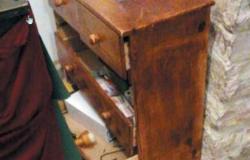Palestrina, Cathedral of Sant’Agapito Martire, Holy Thursday 28 March 2024
Dear brothers and sisters,
with this celebration we enter the Easter Triduum, the three days that the Church invites us to celebrate as if they were one, to arrive at the celebration of Christ’s Easter.
We therefore enter this Holy Triduum with the celebration of a prophetic gesture: before being captured, condemned, put to death and then resurrected, Jesus gives himself as food on the night he was betrayed.
He is betrayed and responds by giving himself: first in the sign of bread and wine and subsequently on the cross, loving and forgiving until his last breath.
But let’s stop on Holy Thursday: the day of the institution of the Eucharist and of the ministerial priesthood, the day of the new commandment: “as I have loved you, so you also love one another”.
Jesus is in Jerusalem with his disciples and He too wants to celebrate Easter with them.
It is the Jewish Passover which celebrates the passage of the chosen people through the Red Sea, the passage from slavery to the service of God in freedom. And Jesus gives a new meaning to this Easter, Easter will thus become for us the “Easter of Jesus”.
At the Jewish Passover we used to meet and even now we meet not in large communities but by families, in case some families gather together to eat the same Passover lamb. But I like to highlight this meeting for small groups, for communities.
I too would like us to feel summoned here, as we should be every Sunday, as a community. Communities that are not concerned about the number of members but about the spirit that unites us.
To celebrate Easter you need to be a family, to feel bound by bonds of proximity, love, friendship, empathy, forgiveness. Let’s ask ourselves if our community is like this? And this is also the reason why we cannot participate – except in the case of the elderly and sick – from home in the celebration of the Eucharist: in community we create and cultivate bonds, friendships, sometimes we can even argue but then we forgive each other .
If during the time of the pandemic we took advantage of digital means to participate in Mass, now is no longer the time. We must return to the relationship – I repeat – except in the cases of those who for serious reasons cannot be physically among us and whom we remember in community prayer and to whom we bring the Eucharist at the end of the Mass.
And what happens in the community?
Jesus, as we have heard, takes bread and wine and institutes the Eucharist with the words: “this is my body which is for you”, “This cup is the New Covenant in my blood”, and then adds – and thus institutes the ministerial priesthood – “do this in memory of me” explaining that every time we eat this bread and drink this cup, we proclaim the death of the Lord, until he comes. That is, we commit ourselves by example and by life, all of us – priests and lay people who live the common priesthood of the faithful – to announce until the glorious return of the Lord at the end of time, what is contained in the consecrated bread and wine: the God’s great love for us which is revealed in Jesus who becomes our servant out of love, who gives his life out of love for us and for the whole world and rises again to assure all believers in Him love and eternal life.
To the gift of self signified in the bread and wine given for us “on the night he was betrayed” – note the great contrast between our way of doing things and that of Jesus – the Lord and Master explains the very content of the bread and wine, of the Eucharist, which we – bishop and priests – preside over every day with our communities and in which the laity, the Bishop and the priests participate together to experience together what is contained in the Eucharist.
Jesus explains the content of the Eucharist with the suggestive gesture of the washing of the feet: He who came from God and knowing that his hour has come, the hour of returning to the Father from whom he came, after having loved his own who were in the world but who have not understood and accepted him, he loves them to the end and makes a gesture of very profound meaning.
He gets up from the table, and raised, that is, in all his dignity, in his verticality which speaks of the relationship between the Father who is in Heaven and Him, he takes off his clothes – he humbles himself as we read in Philippians 2, he empties himself, that emptying who will reach perfection on the cross -, he wraps a towel around his waist, and begins to make the gesture that the house slaves did towards the guests. He bends before his disciples, he bends before us tonight, traitors like his and perhaps more than his, and washes our feet, one of the less noble parts of the body, the one in contact with the ground, the one that reminds us that without being loved by God we certainly cannot fly high.
Once this gesture of love is over, which sinful man struggles to accept because it is difficult to let ourselves be loved freely, it makes us feel guilty… Jesus explains the gesture: “You call me Master and Lord, and you are right, because I am. If therefore I, the Lord and Master, have washed your feet, you also ought to wash one another’s feet. In fact, I have given you an example, so that you too should do as I did to you.”
This gesture is prophetic about what will actually happen the next day. To what we will celebrate tomorrow: the giving of oneself out of love on the cross, and then – this is what we will celebrate on Saturday night and Sunday and in the following days – overcoming death with the Resurrection so that thanks to the gift of the Holy Spirit the bread and wine given will become forever, in every Mass, presence of God’s gift of total love for us so that full of love, washed by His love, we too love others and serve them as He has given us the example.
Dear brothers and sisters, you understand then how it is not possible to celebrate and receive the Eucharist if we do not feel like a community. Poor community, community of sinners, but community loved by Him who gave his body and his blood for us.
You understand how today’s celebration is challenging for our ties. How much division in the Church, in our communities, how much division in the community of all men to whom Jesus with his love wants to reach through us – priests and lay faithful – through the example that we cannot help but make our own after having celebrated the Eucharist together and be fed with bread and wine, sacraments of his body and blood, given for us and for all.
United to the Easter of Jesus, present in the sacrament of the body and blood of the Lord which we will soon break and share, let us then make the eloquent gesture of the washing of the feet and commit ourselves to living as a Christian community.
In today’s world so hostile to the faith, let us support each other in living it and transmitting it, in announcing to everyone the beauty of the love of Christ who died and rose again for us and for everyone. We evangelize, that is, we bear witness to God’s love for us not as if from a besieged citadel in which we take refuge to defend ourselves, but with freedom and openness towards everyone. Inner freedom, which allows us to propose to everyone with our lives rather than with words that we are loved by God and freedom towards those to whom we propose the love of God fully manifested in Jesus without crusades but with the heart and life at the their service, with humility, walking with them together with patience, if anything even for very long periods of time and perhaps not managing to see any change in them, but persevering in being a community that does not look too much inside itself, at its navel, but which looks out, who wishes to be outgoing to make everyone feel the freshness of the water of the love of God who washes our feet, who serves us until he dies and is resurrected for us to give us life and give it to us in abundance.
With these feelings, let us now proceed to the ritual of foot washing. And while I personally carry out this gesture, let us not look at the choreography but let us wash our feet but also our heads – as Peter said – to be reborn with Christ to a new life where the word donation and love for those who betray is not only his but that of every disciple who feels loved and forgiven by Jesus. Amen.
+ Mauro Parmeggiani
Bishop of Tivoli and Palestrina




